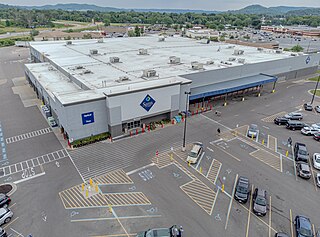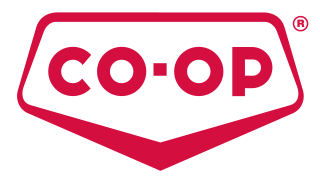
Samuel Moore Walton was an American business magnate best known for founding the retailers Walmart and Sam's Club, which he started in Rogers, Arkansas and Midwest City, Oklahoma in 1962 and 1983 respectively. Wal-Mart Stores Inc. grew to be the world's largest corporation by revenue as well as the biggest private employer in the world. For a period of time, Walton was the richest person in the United States. His family has remained the richest family in the U.S. for several consecutive years, with a net worth of around US$240.6 billion as of January 2022. In 1992 at the age of 74, Walton died of blood cancer and was laid to rest at the Bentonville Cemetery in his longtime home of Bentonville, Arkansas.

Best Buy Co., Inc. is an American multinational consumer electronics retailer headquartered in Richfield, Minnesota. Originally founded by Richard M. Schulze and James Wheeler in 1966 as an audio specialty store called Sound of Music, it was rebranded under its current name with an emphasis on consumer electronics in 1983.

Sam's West, Inc. is an American chain of membership-only warehouse club retail stores owned and operated by Walmart Inc., founded in 1983 and named after Walmart founder Sam Walton as Sam's Wholesale Club. As of January 31, 2019, Sam's Club ranks second in sales volume among warehouse clubs with $84.3 billion in sales, behind its main rival Costco Wholesale.

The Warehouse Group (TWG) was established by Stephen Tindall in 1982 and is the largest retail group in operation in New Zealand. It is a corporate conglomerate that consists of The Warehouse, Warehouse Stationery and Noel Leeming.
Ben Franklin is a chain of five and dime and arts and crafts stores found primarily in small towns throughout the United States, currently owned by Promotions Unlimited of Mount Pleasant, Wisconsin. They are organized using a franchise system, with individual stores owned by independent proprietors. It was perhaps the first retail franchise, starting in 1927. They are named after Benjamin Franklin, taking a cue in their merchandise offerings from Franklin's saying, "A penny saved is a penny earned."
SuperValu, Inc., was an American wholesaler and retailer of grocery products. The company, formerly headquartered in the Minneapolis suburb of Eden Prairie, Minnesota, had been in business since 1926. It is a wholly owned subsidiary of United Natural Foods (UNFI).

Fast-moving consumer goods (FMCG), also known as consumer packaged goods (CPG) or convenience goods, are products that are sold quickly and at a relatively low cost. Examples include non-durable household goods such as packaged foods, beverages, toiletries, candies, cosmetics, over-the-counter drugs, dry goods, and other consumables.

Comet Electricals Limited, trading as Comet, is an online electrical retail chain based in the United Kingdom. The company sells consumer electronics and white goods, along with related products and services. Its predecessor, under the same brand name, pioneered the concept of the out-of-town discount warehouse in the United Kingdom.

Crane Co. is an American industrial products company based in Stamford, Connecticut. Founded by Richard Teller Crane in 1855, it became one of the leading manufacturers of bathroom fixtures in the United States, until 1990, when that division was sold off. In 1960 it began the process of becoming a holding company with a diverse portfolio. Its business segments are Aerospace & Electronics, Engineered Materials, Fluid Handling, and Controls. Industries served by these segments include chemical industries, commercial construction, food and beverage, general and commercial aviation, and power generation.
James Lawrence "Bud" Walton was the brother of Sam Walton and executive of Walmart.

Brick and mortar is an organization or business with a physical presence in a building or other structure. The term brick-and-mortar business is often used to refer to a company that possesses or leases retail shops, factory production facilities, or warehouses for its operations. More specifically, in the jargon of e-commerce businesses in the 2000s, brick-and-mortar businesses are companies that have a physical presence and offer face-to-face customer experiences.

Dunn BrothersCoffee is a franchise company of coffeehouses founded in St. Paul, Minnesota, in December 1987 by brothers Ed and Dan Dunn. As of December 2023, Dunn Brothers Coffee has 52 locations in Iowa, Minnesota, Missouri, North Dakota, South Dakota, Texas, and Wisconsin.
Fulfillment house and fulfillment center are modern terms for a packing warehouse. The terms were coined in the middle of the 1990s: "fulfillment center" usually refers to an in-house packing warehouse, while "fulfillment house" tends to be used about companies that specialize in warehousing and packing for others.

Federated Co-operatives Limited (FCL), operating as Co-op, is a co-operative federation providing procurement and distribution to member co-operatives in Western Canada. It was established in 1944 after a series of amalgamations of smaller cooperatives, starting in Saskatchewan, including the Saskatchewan Co-operative Wholesale Society and a fuel production and distribution co-op, the Consumers’ Co-operative Refinery Limited. Federated had expanded to Manitoba, Alberta, and British Columbia by 1970. Federated Co-operatives is owned by about 160 member co-operatives across the region. Some are large co-operatives, such as Saskatoon Co-op, while others are small co-ops based in small towns, such as Abernethy Co-op.

Hannaford is an American supermarket chain based in Scarborough, Maine. Founded in Portland, Maine, in 1883, Hannaford operates stores in New England and New York. The chain is part of the Ahold Delhaize group based in the Netherlands, and is a sister company to formerly competing New England supermarket chain Stop & Shop.
Winmark Corporation is an American franchisor of five retail businesses that specialize in buying and selling used goods. The company is based in Minneapolis, Minnesota. Winmark was founded in 1988 as Play It Again Sports Franchise Corporation by Ron Olson and Jeffrey Dahlberg after they purchased the Play It Again Sports franchise rights from Martha Morris. They renamed the company to Grow Biz International Inc. in June 1993. Grow Biz went public in August 1993. In 2000, John Morgan replaced Dahlberg as CEO and renamed the company to Winmark in 2001. Morgan rescued Winmark from the verge of bankruptcy by selling financially failing franchise concepts and stores and replacing the management team. The company's strategy was to move from owning stores itself to having franchisees own all the stores.

Chemist Warehouse Group is an Australian company operating a chain of retail pharmacies both locally and internationally. The company is one of Australia's largest pharmacy retailers with over 500 stores in Australia, and employs over 20,000 staff. The company brands itself as offering discounted prices for pharmaceutical goods.
Retailing in New Zealand is an important sector in the economy of New Zealand, as a channel for a large proportion of household spending and international visitor spending.
The Butler Brothers Department Stores were a chain of department stores that opened in the 1950s.














